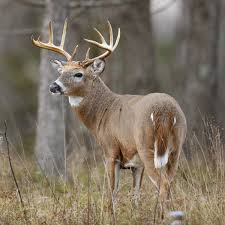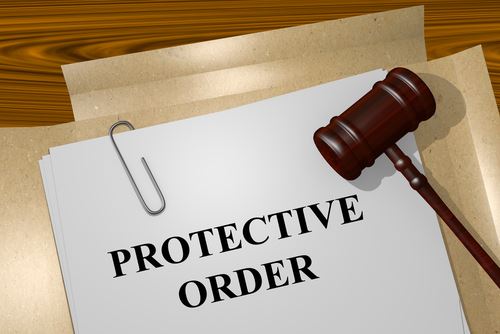Alabama Hunting
Hunting is one of the most popular recreational activities in Alabama. The state’s diverse physiography, ranging from southern beaches to northern mountains, creates a favorable environment for various hunting practices.
This article will explore the laws and regulations governing hunting in Alabama, the different wildlife available for hunting, the required licenses and permits, and the state’s efforts to promote responsible hunting. So grab your gear and let’s dive into the world of hunting in Alabama!
Alabama Hunting Regulation
Before venturing into the wild for hunting, it is crucial to understand the laws and regulations put in place by the Alabama legislature. Hunting, as defined by the state, includes shooting, trapping, killing, capturing, or attempting to take wild animals and birds. The regulations ensure the safety of both hunters and the wildlife they pursue.
Distance Restriction
In Alabama, it is illegal to hunt within at least 50 yards of public areas like highways and public roads. Specific firearms, such as shotguns with more than 4 shots, muzzle rifles, or firearms with .40 caliber or higher, are also restricted within this distance. The law primarily affects deer hunting and is aimed at addressing safety concerns.
Hunting Permission
Hunting on private property without the landowner’s permission is unlawful. However, if accompanied by the landowner or as a guest, hunting becomes permissible. Respecting private property rights is essential for maintaining positive relationships between hunters and landowners.
Hunting Hours
Hunting is allowed only during daylight hours, defined as 30 minutes prior to sunrise and 30 minutes after sunset. This regulation ensures that hunting activities occur under safe and visible conditions.
Body Protection Falling
To prevent common hunting injuries like falling from trees, hunters are required to wear a full-body harness while using tree stands. Using a pull-up rope for equipment retrieval and observing specific guidelines when climbing or descending from a tree is mandatory. Safety measures contribute to accident prevention during hunting.
Alabama Hunting License Permits and Tags
Obtaining an Alabama hunting license is a necessary step for anyone interested in hunting within the state. The Alabama legislature has outlined specific requirements for different groups of hunters.
Hunter Education Requirement
Before applying for an Alabama hunting license, completing a state-approved hunter education course is mandatory. Exceptions include law enforcement agents, military members, and Alabama National Guard residents. The minimum age to apply for the course is 10 years old, but hunters must be at least 16 years old to obtain an Alabama Hunting License.
Hunter Education Requirement Exceptions
The state’s Wildlife Heritage Act offers an alternative for hunters seeking a license. They can hunt under the supervision of a licensed mentor instead of completing the required course. However, hunting under supervision comes with specific regulations, including adherence to voice commands and staying within 30 feet of the supervisor.
Understanding The Options for Alabama Hunter Education Course
Hunters can choose between attending a physical class or taking an online class for hunter education. Both options provide comprehensive training, qualifying hunters for an Alabama hunting license. Physical classes are free, while online classes may involve a provider’s fee.
Types of Alabama Hunting Licenses
Alabama issues three basic types of hunting licenses, each catering to specific groups of hunters:
- Hunting Recreational License for Residents: Issued to residents of Alabama, this license allows various types of hunting activities. Residents can choose from a range of licenses and permits based on their hunting preferences and needs.
- Hunting Recreational License for Non-Residents: Non-residents interested in hunting in Alabama must apply for this license. Like residents, non-residents can select specific licenses, permits, and tags to suit their hunting goals.
- Hunting Commercial License: This type of license is intended for hunters engaged in commercial hunting activities within the state.
Alabama Wildlife Game and Fish
Alabama boasts abundant wildlife for hunters to pursue. Some of the most popular game species include:
Alabama Deer Hunting
Deer hunting is the most common and economically significant hunting activity in Alabama. With over 170,000 deer hunters harvesting more than 300,000 deer annually, deer hunting plays a vital role in the state’s economy.
Alabama Turkey Hunting
Following deer hunting, turkey hunting is the second most popular game in Alabama. The state offers enthusiastic hunters more than a month of turkey hunting season each year.
Alabama Duck Hunting
Waterfowl hunting, particularly duck hunting, is another popular pursuit among Alabama hunters. The Mobile Tensaw Delta and the Tennessee River are notable locations for waterfowl hunting.
Alabama Quail Hunting
Though the quail population has reduced over the past decade, commercial quail hunting reserves still offer opportunities for enthusiasts.
Alabama Dove Hunting
Dove hunting, typically occurring during the fall season, is a social and recreational event for many hunters and their families.
Alabama Hog Hunting
The population of hogs has increased significantly in Alabama, causing damage to agricultural areas. Hog hunting is allowed throughout the year with a valid state license.
Alabama Coyote Hunting
Coyote hunting is permitted all year round in Alabama.
Alabama Rabbit Hunting
Small game hunting, including rabbit hunting, is a great way for hunters to socialize and introduce newcomers to the sport.
Alabama Alligator Hunting
Alligator hunting is strictly regulated and requires a special permit. Residents can apply for the permit online, and hunting takes place at nighttime.
Alabama Bear Hunting
Black bears are found in specific regions of Alabama, and there is no open season for bear hunting. Residents are encouraged to report bear sightings to the Department for Conservation and Natural Resources.
Alabama Archery Parks
Alabama provides various archery parks for bow-hunting enthusiasts. These parks offer training facilities and shooting targets for hunters to hone their skills.
Alabama Public Hunting Lands
For hunters seeking public lands, Alabama offers various options, including Wildlife Management Areas, Special Opportunity Areas, Physically Disabled Hunting Areas, Forever Wild Land Trust, US Forest Service Lands, and Wheeler Wildlife Refuge.
Conclusion
Alabama’s rich wildlife diversity and well-regulated hunting laws make it a recreational paradise for hunters. From deer and turkey to ducks and hogs, the state offers ample opportunities to connect with nature and embrace the art of hunting. Remember, responsible hunting ensures the preservation of both wildlife and the joy of the sport for generations to come.
FAQs;
Q1. Do I need a hunting license to hunt in Alabama?
Yes, obtaining an Alabama hunting license is mandatory for all hunters.
Q2. What are the different types of hunting licenses available?
Alabama issues three types of hunting licenses: Hunting Recreational Licenses for Residents, Hunting Recreational Licenses for Non-Residents, and Hunting Commercial Licenses.
Q3. Are there any exceptions to the hunter education requirement?
Yes, some individuals, such as law enforcement agents, military members, and Alabama National Guard residents, are exempt from the hunter-education requirement.
Q4. What are the popular game species for hunting in Alabama?
Popular game species include deer, turkey, duck, quail, dove, hog, coyote, and rabbit.
Q5. Can non-residents hunt alligators in Alabama?
No, alligator hunting in Alabama is only allowed for residents with a special permit.








